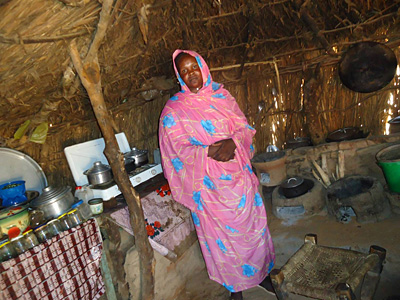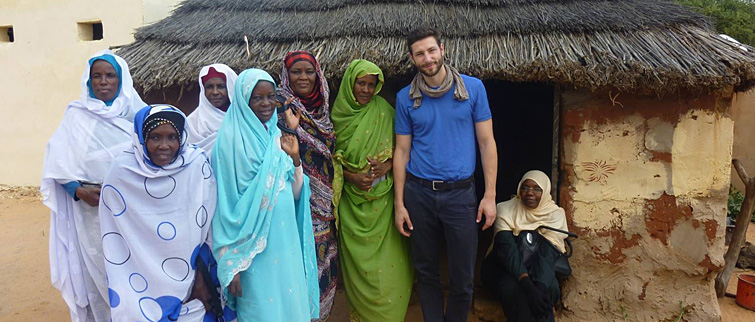The Low Smoke Stoves Project is delivering health and economic benefits to households in the strife-torn region of Darfur, Sudan, where climate change, drought and desertification are a fact of life. The project provides a transformational financing scheme to reduce greenhouse gas emissions by replacing traditional wood and charcoal stoves with energy-efficient liquefied petroleum gas (LPG) cook stoves.
Fast facts
- The first carbon credit program to be registered in Sudan;
- 10,000 cook stoves are being delivered to Sudanese communities;
- The cook stoves will cut more than 300,000 tonnes of carbon dioxide over 10 years.
The problem
In Sudan, cooking with charcoal and firewood contributes to thousands of deaths each year due to smoke inhalation. Surrounding forests are suffering from years of exploitation. In addition, cooking with charcoal emits almost twice as much carbon dioxide as LPG, according to the Intergovernmental Panel on Climate Change.
The solution
 Cooking with LPG is a cheaper and cleaner alternative to burning charcoal and firewood. The Global Alliance for Clean Cookstoves notes that cooking with LPG reduces most key pollutants by more than 95 per cent, and reduces energy consumption by 50 to 70 per cent in comparison to dirtier fuels. The Low Smoke Stoves Project will deliver 10,000 LPG cook stoves to Sudanese communities, cutting more than 300,000 tonnes of carbon dioxide equivalent over 10 years. The stoves also ensure the surrounding forests recover from years of exploitation.
Cooking with LPG is a cheaper and cleaner alternative to burning charcoal and firewood. The Global Alliance for Clean Cookstoves notes that cooking with LPG reduces most key pollutants by more than 95 per cent, and reduces energy consumption by 50 to 70 per cent in comparison to dirtier fuels. The Low Smoke Stoves Project will deliver 10,000 LPG cook stoves to Sudanese communities, cutting more than 300,000 tonnes of carbon dioxide equivalent over 10 years. The stoves also ensure the surrounding forests recover from years of exploitation.
Africa missed out on innovative carbon financing, as the continent lacked the appropriate infrastructure and institutional capacity and had many regulatory and local skills gaps that increased the risk tolerance for investors. This is starting to change with the Low Smoke Stoves Project.
Helping people
In addition to reducing carbon emissions, the project provides social, economic and health benefits to participating families. According to the World Health Organization, indoor smoke from burning solid fuels can expose women and young children to pollution 100 times higher than acceptable levels. This activity also demonstrates effective local entrepreneurship, supported by carbon finance.
Spillover effect
The project has proven popular with low-income households, and the project team has plans to replicate the model elsewhere in the country to bring the benefits of clean energy to tens of thousands more families.

Olivier with stove beneficiaries




Images owned by the activity partners, all rights reserved.

